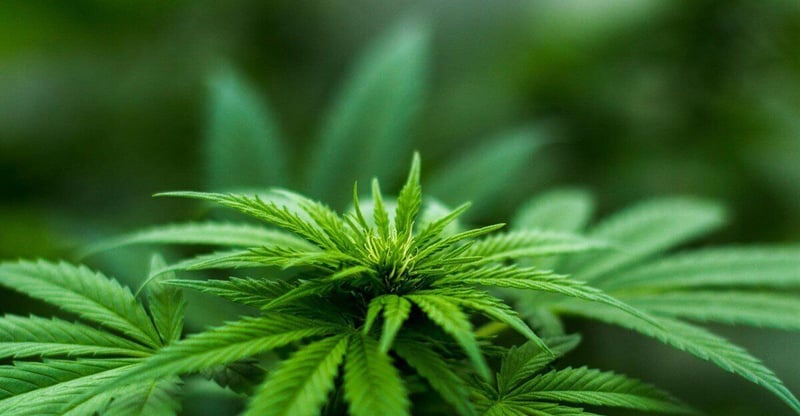The Ripple Effects Of South Africa's Cannabis Food Ban On The International Stage
Submitted by: BizCommunity Editor Save to Instapaper
Published in a government gazette, the decision falls under the Foodstuffs, Cosmetics, and Disinfectants Act of 1972, which was amended and officially updated on Friday, 7 March 2025, and bans the sale, import, and production of any food containing ingredients derived from the Cannabis Sativa L plant, including hemp, hemp seed oil, and hemp seed flour. Cannabis-infused drinks also form part of the edibles.
Under the new regulation, individuals and businesses that sell, manufacture, or import cannabis-infused edible products now risk violating the Foodstuffs, Cosmetics, and Disinfectants Act of 1972 and may be liable to a fine or imprisonment upon conviction.
This decision effectively removes cannabis and hemp-derived food products such as hemp seeds, hemp-seed oil and hemp protein powder from SA's retail market, refocusing their use primarily on the pharmaceutical sector —an outcome influenced by the medicinal properties of both hemp and cannabis, which are increasingly being sought to treat severe medical conditions, such as cancer, Parkinson’s disease, Alzheimer’s disease, arthritis and other neurological conditions.
Already in South Africa, medical cannabis products may be prescribed for any health condition, provided the prescribing physician determines its potential benefit. Patients can obtain medical cannabis through authorised health practitioners licensed by the South African Health Products Regulatory Authority (SAHPRA). Once prescribed, these products can be dispensed by pharmacists registered with the South African Pharmacy Council (SAPC).
Furthermore, South Africa has established a regulatory framework that permits the cultivation, manufacturing, and export of finished medicinal cannabis products to Europe. This framework is primarily overseen by the South African Health Products Regulatory Authority (SAHPRA) under the Medicines and Related Substances Act.
Cannabis industry push
The government has not publicly explained why cannabis- and hemp-infused food products can no longer be sold as consumer goods in South Africa. However, the National Cannabis Master Plan for South Africa, released by the Department of Agriculture, Land Reform and Rural Development in 2021, states that South Africa is a party to three international treaties that impact the legal status of cannabis commercialisation:
- The UN Single Convention on Narcotic Drugs, 1961 (as amended by the 1972 Protocol);
- The UN Convention on Psychotropic Substances, 1971;
- The UN Convention Against Illicit Traffic in Narcotic Drugs and Psychotropic Substances, 1988.
Furthermore, the Master Plan states that it aims to "maintain a delicate balance between the need to protect the general public against drugs and the need to promote legitimate economic activities brought about by the commercialisation of dagga and hemp."
Cannabis industry evolution
The policy change also spotlights the Master Plan's aims to provide a framework for the development and growth of the cannabis industry and underscores the government's commitment to integrating cannabis cultivation into broader agricultural and economic strategies, potentially benefiting land-reform beneficiaries. Already it's empowering emerging farmers to participate in the medicinal cannabis industry, thereby enhancing economic opportunities and aligning with social equity objectives.
The Department of Agriculture, Land Reform and Rural Development (DALRRD) initially led the development of this Master Plan. As of September 2024, the responsibility for co-ordinating the Cannabis Master Plan was transferred to the Department of Trade, Industry, and Competition (DTIC).
However, whether grown indoors or outdoors, hemp cultivation still requires a license from the Department of Agriculture, Land Reform and Rural Development (DALRRD) under the Plant Improvement Act, 1976.
SA President Cyril Ramaphosa revisited the ideals of the National Cannabis Master Plan in this year's State of the Nation Address (Sona). "We want South Africa to be leading in the commercial production of hemp and cannabis," he said. "We are improving our logistics network and rural supply chains, and opening new export markets for products."
- The United Nations estimates that approximately 3,9% of the global adult population, or 190 million people, are cannabis users. The highest prevalence of cannabis users was found to be from Europe, followed by the US and the Oceania Region. The global medical cannabis industry is estimated to generate $82.9bn by 2027.
Latest Press Articles
- Castle Lager Reinforces Longstanding Commitment To South African Cricket As Official Sponsor Of The Proteas
- Ladles Of Love Launches 2025 Mandela Day Campaign To Fight Child Food Poverty Through Volunteer Action
- Mining In Motion Summit Highlights Growing Support For Formalized Artisanal And Small-scale Mining Sector (ASM) Industry
- Spaza Shop Support Fund Information Session TO Be Held In Limpopo
- OFM Launches 'the BIG Cover UP'
- Learnerships - The Antidote TO Youth Unemployment, Skills Mismatch
- Simply Financial Services Brings Affordable Funeral Cover To Farm Workers At Nampo 2025 Through Simply Boer Initiative
- Renergen Chief Executive Officer (CEO) Joins African Energy Week (AEW) 2025 Ahead OF Virginia Phase 2 Project Start
- Undp Calls For Applications TO Timbuktoo Creatives Lab
- Stellantis Appoints Antonio Filosa As New CEO
- UP Lecturer TO Take ON Comrades Marathon TO Support Missing-middle Students
- Penquin CEO Named Judge For 2025 Effie Awards South Africa
- Profmed Steps In As 1,800 Qualified SA Doctors Face JOB And Healthcare Crisis
- Publicis Groupe Africa Appoints Ashish Williams As SVP OF Media
- Enter Your Winning Work For The New Generation Awards
The Pulse Updates
- Celebrate International Day Of Play With The Weirdest (and Most Wonderful) Toys Of 2025 (June 4, 2025)
- Switching On The Future - Landmark Electricity Expo Comes To Joburg (June 3, 2025)
- Timeless, Bold, And Distilled With Care - Just Like Dad (June 2, 2025)
- New Report Reveals Msme Funding Realities In South Africa – And What Must Change (May 30, 2025)
- Opinion Piece: Incorporating Ai Into Workforce Planning (May 26, 2025)
